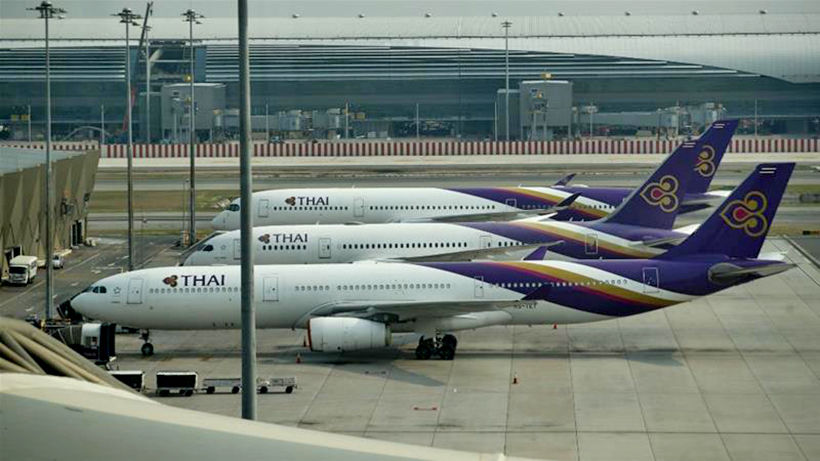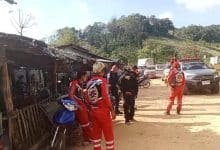Thai Airways procurement probe points to corruption

“Corruption has definitely occurred.”
An investigation by the Transport Ministry has revealed that some employees of Thai Airways got quite rich from a major plane procurement deal struck in 2003-2004. Deputy Transport Minister Thaworn Senneam said yesterday that the conclusion came after a team led by a former commissioner of the Metropolitan Police Bureau completed its investigation. Thaworn was assigned by Transport Minister Saksayam Chidchob to announce the results of the investigation to parliament on Wednesday.
He said the focus of the investigation was on the factors that landed the struggling carrier deep in the red. The national flag carrier has run up debts of over 244 billion baht. The Central Bankruptcy Court is hearing from the beleaguered airline’s creditors after it presented a debt rehabilitation plan to the court. 3 hearings are expected to be completed before the end of this month and the court will decide whether to approve the plan.
Thaworn said the probe revealed that between 2003 and 2004, Thai Airways bought 10 Airbus A340 wide-bodied aircraft, to be used on direct flights linking Bangkok with New York and Los Angeles. 2 years after the routes were launched, the airline recorded losses of 12 billion baht. The losses more than tripled to to 39 billion baht after the same aircraft were used on other routes.
The direct US flights went ahead despite objections from the Office of the National Economic and Social Development Council over acquiring that type of plane. The agency questioned the feasibility of operating the fuel-guzzling aircraft profitably.
Thaworn said the team’s findings will be forwarded to the National Anti-Corruption Commission and he’ll give further details of the probe later in the month.
Charnthep Sesaves, the former Metropolitan Police Bureau commissioner, also said some Thai Airways employees had pocketed ill gotten gains from managing procurement projects, including the A340 deal.
“Corruption has definitely occurred.”
Thaworn said he had consulted the Council of State, the government’s legal arm, and was informed Charnthep’s team had to wind down its investigation because the airline is no longer a state enterprise and therefore doesn’t come under the supervision of the Transport Ministry.
Thai airways is buried under a long list of deeply entrenched problems that span the past decade, from its online platform, ticketing and sales, aircraft choices, to controversies over aircraft and engine procurement. The debacle over the use of Rolls Royce engines for its fleet of Boeing 777s is just one of the stories that have stained the reputation of the airline. In January 2017 a 4 year investigation by the UK’s Serious Fraud Office came to light. It determined that aircraft engine-maker Rolls Royce paid bribes to “…agents of the Thai state and employees of Thai Airways…” in order to secure orders for the Rolls Royce T800 engine for its Boeing 777-200s. Rolls Royce admitted to the charge and agreed to pay penalties. The illegal payments of US$36.4 million took place between 1991 and 2005. Bribes were paid in 3 tranches…
1 June 1991 – 30 June 1992: Rolls-Royce paid 660 million baht (US$18.8 million)
1 March 1992 – 31 March 1997: Rolls-Royce paid US$10.38 million
1 April 2004 – 28 February 2005: Rolls-Royce paid US$7.2 million
The government rejected calls for PM Prayut Chan-o-cha to use his executive powers to cut through red tape in the investigation of the Rolls-Royce bribery scandal. Response from the Thai government’s National Anti-Corruption Commission to information provided by the SFO was said to be “tepid” and “…could be more embarrassing than the scandal itself.”
SOURCES: Bangkok Post | Wikipedia
Latest Thailand News
Follow The Thaiger on Google News:


























